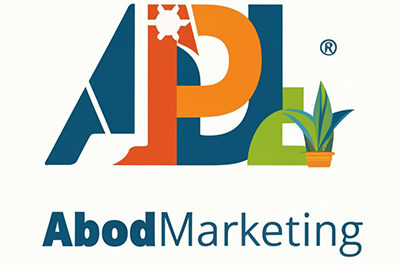marketing plan
“Achieve Your Goals with a Strategic Marketing Plan!”
Introduction
A marketing plan is a document that outlines the strategies and tactics used to promote a product, service, or brand. It is an essential tool for any business, large or small, as it helps to ensure that all marketing activities are aligned with the company’s overall objectives. A well-crafted marketing plan can help to identify target markets, develop effective messaging, and create a plan for reaching those markets. It can also help to track progress and measure success. In this guide, we will discuss the components of a successful marketing plan and provide tips for creating one.
How to Create an Effective Marketing Plan
Creating an effective marketing plan is essential for any business that wants to increase its customer base and grow its profits. A marketing plan is a comprehensive document that outlines the marketing strategies and tactics a business will use to reach its target market. It should include a detailed analysis of the target market, a description of the product or service being offered, and a plan for how the business will reach its goals.
The first step in creating an effective marketing plan is to conduct a thorough analysis of the target market. This includes researching the demographics, interests, and needs of the target audience. It is also important to understand the competition and how the business can differentiate itself from them.
Once the target market has been identified, the next step is to create a detailed description of the product or service being offered. This should include a description of the features and benefits of the product or service, as well as any unique selling points.
The next step is to develop a plan for how the business will reach its target market. This includes deciding on the best channels for reaching the target audience, such as social media, email, or traditional advertising. It is also important to consider the budget for the marketing plan and how it will be allocated.
Finally, the marketing plan should include a timeline for when the strategies and tactics will be implemented. This will help ensure that the plan is executed in a timely manner and that the goals are achieved.
Creating an effective marketing plan is essential for any business that wants to increase its customer base and grow its profits. By conducting a thorough analysis of the target market, creating a detailed description of the product or service, and developing a plan for how the business will reach its goals, businesses can create an effective marketing plan that will help them reach their goals.
The Benefits of Developing a Comprehensive Marketing Plan
Developing a comprehensive marketing plan is essential for any business that wants to succeed in the competitive marketplace. A comprehensive marketing plan provides a roadmap for the company to follow in order to reach its goals. It also helps to ensure that all marketing efforts are focused on the same objectives. Here are some of the key benefits of developing a comprehensive marketing plan:
1. Establishing Goals: A comprehensive marketing plan helps to establish clear and measurable goals for the company. This allows the company to track progress and make adjustments as needed. It also helps to ensure that all marketing efforts are focused on the same objectives.
2. Identifying Target Audience: A comprehensive marketing plan helps to identify the target audience for the company’s products and services. This allows the company to tailor its marketing efforts to the specific needs of its target audience.
3. Allocating Resources: A comprehensive marketing plan helps to ensure that resources are allocated in the most effective way. This helps to maximize the return on investment for the company’s marketing efforts.
4. Measuring Results: A comprehensive marketing plan helps to measure the success of the company’s marketing efforts. This allows the company to make adjustments as needed in order to maximize the effectiveness of its marketing efforts.
5. Improving Efficiency: A comprehensive marketing plan helps to improve the efficiency of the company’s marketing efforts. This helps to ensure that the company’s marketing efforts are focused on the most effective strategies.
Overall, developing a comprehensive marketing plan is essential for any business that wants to succeed in the competitive marketplace. A comprehensive marketing plan provides a roadmap for the company to follow in order to reach its goals. It also helps to ensure that all marketing efforts are focused on the same objectives. By establishing clear and measurable goals, identifying the target audience, allocating resources, measuring results, and improving efficiency, a comprehensive marketing plan can help any business to succeed.
The Role of Social Media in Your Marketing Plan
Social media has become an integral part of modern marketing plans. It is an effective way to reach a large audience quickly and cost-effectively. When used strategically, social media can help businesses build relationships with customers, increase brand awareness, and drive sales.
When creating a social media marketing plan, it is important to consider the goals of the business. Are you looking to increase brand awareness, drive sales, or build relationships with customers? Once you have identified your goals, you can create a plan to achieve them.
When creating a social media marketing plan, it is important to consider the platforms that are most relevant to your target audience. Different platforms have different strengths and weaknesses, so it is important to choose the ones that are most likely to reach your target audience.
Once you have chosen the platforms that are most relevant to your target audience, you can create content that is tailored to each platform. Different platforms require different types of content, so it is important to create content that is optimized for each platform.
It is also important to consider how you will measure the success of your social media marketing plan. This can be done by tracking metrics such as engagement, reach, and conversions. By tracking these metrics, you can gain insights into what is working and what needs to be improved.
Finally, it is important to be consistent with your social media marketing plan. Consistency is key when it comes to social media, as it helps to build trust and loyalty with your audience.
By following these steps, you can create an effective social media marketing plan that will help you reach your goals. Social media can be a powerful tool for businesses, and when used strategically, it can help you build relationships with customers, increase brand awareness, and drive sales.
How to Measure the Success of Your Marketing Plan
Measuring the success of a marketing plan is essential for any business. It helps to identify areas of success and areas that need improvement. By understanding the effectiveness of a marketing plan, businesses can make informed decisions about their marketing strategies and allocate resources accordingly.
There are several ways to measure the success of a marketing plan. The most common methods include tracking website analytics, measuring customer engagement, and analyzing sales data.
Website analytics provide valuable insights into how customers interact with a website. This includes tracking page views, time spent on a page, and the number of visitors. By understanding how customers interact with a website, businesses can make informed decisions about their marketing strategies.
Measuring customer engagement is another way to measure the success of a marketing plan. This includes tracking the number of likes, shares, and comments on social media posts, as well as the number of email subscribers. By understanding how customers engage with a business’s content, businesses can make informed decisions about their marketing strategies.
Analyzing sales data is another way to measure the success of a marketing plan. This includes tracking the number of sales, the average order value, and the customer lifetime value. By understanding how customers interact with a business’s products and services, businesses can make informed decisions about their marketing strategies.
By tracking website analytics, measuring customer engagement, and analyzing sales data, businesses can gain valuable insights into the effectiveness of their marketing plans. This information can be used to make informed decisions about their marketing strategies and allocate resources accordingly.
The Benefits of A/B Testing in Your Marketing Plan
A/B testing is a powerful tool for marketers that can help them optimize their marketing plans and maximize their return on investment. A/B testing is a method of comparing two versions of a web page, email, or other marketing asset to determine which one performs better. By testing different versions of a marketing asset, marketers can identify which elements are most effective in driving conversions and engagement.
A/B testing can help marketers identify the most effective elements of their marketing plans. By testing different versions of a web page, email, or other marketing asset, marketers can determine which elements are most effective in driving conversions and engagement. This can help marketers optimize their marketing plans and ensure that they are targeting the right audience with the right message.
A/B testing can also help marketers identify opportunities for improvement. By testing different versions of a marketing asset, marketers can identify areas where they can make changes to improve the performance of their campaigns. This can help marketers identify areas where they can make changes to improve the effectiveness of their campaigns and maximize their return on investment.
Finally, A/B testing can help marketers save time and money. By testing different versions of a marketing asset, marketers can quickly identify which elements are most effective in driving conversions and engagement. This can help marketers save time and money by eliminating the need to create multiple versions of a marketing asset.
In conclusion, A/B testing is a powerful tool for marketers that can help them optimize their marketing plans and maximize their return on investment. By testing different versions of a marketing asset, marketers can identify which elements are most effective in driving conversions and engagement. This can help marketers save time and money by eliminating the need to create multiple versions of a marketing asset. A/B testing can also help marketers identify opportunities for improvement and ensure that they are targeting the right audience with the right message.
How to Incorporate SEO into Your Marketing Plan
SEO, or search engine optimization, is an important part of any marketing plan. It helps to ensure that your website is visible to potential customers and that your content is ranked highly in search engine results. Incorporating SEO into your marketing plan can help you to reach more customers and increase your visibility online.
The first step in incorporating SEO into your marketing plan is to conduct keyword research. This involves researching the words and phrases that potential customers are likely to use when searching for your products or services. Once you have identified the most relevant keywords, you can use them in your website content, blog posts, and other online materials. This will help to ensure that your content is visible to potential customers and that it ranks highly in search engine results.
Another important part of incorporating SEO into your marketing plan is to optimize your website for search engines. This involves making sure that your website is easy to navigate and that it loads quickly. Additionally, you should ensure that your website is optimized for mobile devices, as more and more people are using their phones and tablets to search for products and services.
Finally, you should also consider link building as part of your SEO strategy. Link building involves creating links from other websites to your own. This helps to increase your website’s visibility and can also help to improve your search engine rankings.
By incorporating SEO into your marketing plan, you can ensure that your website is visible to potential customers and that your content is ranked highly in search engine results. This can help to increase your visibility online and can ultimately lead to more customers and increased sales.
The Benefits of Content Marketing in Your Marketing Plan
Content marketing is an essential part of any successful marketing plan. Content marketing is the process of creating and distributing valuable, relevant, and consistent content to attract and retain a clearly defined audience, and ultimately, to drive profitable customer action. Content marketing can be used to build brand awareness, generate leads, and increase sales.
Content marketing can help to build trust and credibility with your target audience. By providing valuable content, you can establish yourself as an authority in your industry and demonstrate your expertise. This can help to build relationships with potential customers and encourage them to purchase from you.
Content marketing can also help to increase website traffic. By creating content that is interesting and informative, you can attract more visitors to your website. This can help to increase your search engine rankings and drive more organic traffic to your website.
Content marketing can also help to generate leads. By providing content that is relevant to your target audience, you can capture their attention and encourage them to take action. This can include signing up for your email list, downloading a white paper, or making a purchase.
Content marketing can also help to increase sales. By providing content that is helpful and informative, you can encourage potential customers to make a purchase. This can include providing product reviews, tutorials, or case studies.
Content marketing is an essential part of any successful marketing plan. By providing valuable content, you can build trust and credibility with your target audience, increase website traffic, generate leads, and increase sales.
How to Develop a Budget for Your Marketing Plan
Developing a budget for your marketing plan is an important step in ensuring that your plan is successful. A budget will help you to plan for the costs associated with your marketing activities and will help you to track your progress. Here are some tips for developing a budget for your marketing plan:
1. Estimate Your Costs: Before you can create a budget, you need to estimate the costs associated with your marketing activities. Consider the cost of materials, labor, and any other expenses that may be associated with your marketing plan.
2. Set a Budget: Once you have estimated the costs associated with your marketing plan, you can set a budget. Consider the amount of money you have available and the amount of money you are willing to spend.
3. Track Your Progress: Once you have set a budget, it is important to track your progress. Monitor your spending and make sure that you are staying within your budget.
4. Adjust Your Budget: As you track your progress, you may need to adjust your budget. If you find that you are spending more than you anticipated, you may need to adjust your budget to accommodate the additional costs.
By following these tips, you can develop a budget for your marketing plan that will help you to stay on track and ensure that your plan is successful.
The Benefits of Automation in Your Marketing Plan
Automation is an increasingly popular tool for businesses to use in their marketing plans. Automation can help businesses save time, money, and resources while increasing efficiency and effectiveness. Here are some of the benefits of automation in your marketing plan.
1. Increased Efficiency: Automation can help streamline processes and reduce the amount of time spent on manual tasks. This can help businesses save time and resources, allowing them to focus on more important tasks. Automation can also help reduce errors and improve accuracy, resulting in better results.
2. Improved Targeting: Automation can help businesses target their audiences more effectively. Automation can help businesses segment their audiences and target them with more relevant content. This can help businesses reach their target audiences more effectively and increase their chances of success.
3. Cost Savings: Automation can help businesses save money by reducing the amount of time and resources spent on manual tasks. Automation can also help businesses reduce costs associated with marketing campaigns, such as printing and mailing costs.
4. Improved Analytics: Automation can help businesses track and analyze their marketing campaigns more effectively. Automation can help businesses gain insights into their campaigns and make more informed decisions. This can help businesses optimize their campaigns and improve their results.
Automation can be a powerful tool for businesses to use in their marketing plans. Automation can help businesses save time, money, and resources while increasing efficiency and effectiveness. Automation can also help businesses target their audiences more effectively and gain insights into their campaigns. Automation can be a great way to optimize your marketing plan and improve your results.
How to Utilize Influencer Marketing in Your Plan
Influencer marketing is a powerful tool for businesses to reach their target audience and increase brand awareness. It involves leveraging the influence of influential people in a particular industry or niche to promote a product or service. By utilizing influencers, businesses can reach a larger audience and create more meaningful connections with their customers.
When creating an influencer marketing plan, it is important to identify the right influencers for your brand. Consider the type of audience you are trying to reach and the type of content they are likely to engage with. Once you have identified the right influencers, you can begin to develop a strategy for working with them.
The first step in your influencer marketing plan should be to create a list of influencers that you would like to work with. Consider their reach, engagement rate, and the type of content they produce. Once you have identified the right influencers, you can begin to develop a strategy for working with them.
When working with influencers, it is important to create a mutually beneficial relationship. Offer them incentives such as free products or services in exchange for their promotion of your brand. You should also be sure to provide them with clear guidelines and expectations for their content.
Once you have established a relationship with influencers, you can begin to create content that will be shared with their followers. This content should be tailored to the influencer’s audience and should be engaging and informative. You should also be sure to track the performance of the content to ensure that it is reaching the right people and having the desired effect.
Finally, it is important to measure the success of your influencer marketing plan. Track the number of followers, engagement rate, and conversions to determine the effectiveness of your campaign. This will help you refine your strategy and ensure that you are getting the most out of your influencer marketing efforts.
By utilizing influencer marketing, businesses can reach a larger audience and create more meaningful connections with their customers. By following these steps, you can create an effective influencer marketing plan that will help you reach your goals.
The Benefits of Mobile Marketing in Your Plan
Mobile marketing is an increasingly important part of any successful marketing plan. With the proliferation of mobile devices, it is essential for businesses to reach their target audiences through mobile channels. Mobile marketing offers a number of benefits that can help businesses reach their goals.
First, mobile marketing is highly cost-effective. Compared to traditional marketing methods, mobile marketing is much less expensive. This makes it an attractive option for businesses with limited budgets. Additionally, mobile marketing is highly targeted. Businesses can target their messages to specific audiences based on location, demographics, and interests. This allows businesses to reach their target audiences more effectively and efficiently.
Second, mobile marketing is highly engaging. Mobile devices are always with users, so businesses can reach their audiences at any time. This allows businesses to create more engaging campaigns that can capture the attention of their target audiences. Additionally, mobile marketing is highly interactive. Businesses can use mobile devices to create interactive campaigns that can engage their audiences and encourage them to take action.
Finally, mobile marketing is highly measurable. Businesses can track the performance of their campaigns in real-time and make adjustments as needed. This allows businesses to optimize their campaigns and ensure that they are reaching their target audiences effectively.
In conclusion, mobile marketing offers a number of benefits that can help businesses reach their goals. It is cost-effective, highly targeted, engaging, and measurable. For these reasons, it is essential for businesses to include mobile marketing in their marketing plans.
How to Track Your Marketing Plan’s Performance
Tracking the performance of your marketing plan is essential to ensure that your efforts are paying off. By monitoring the progress of your plan, you can identify areas that need improvement and make adjustments to ensure that your marketing goals are met. Here are some tips to help you track the performance of your marketing plan:
1. Set measurable goals. Before you begin tracking the performance of your marketing plan, it is important to set measurable goals. This will help you determine whether or not your plan is successful. Consider setting goals for each of your marketing activities, such as the number of leads generated, the number of conversions, and the amount of revenue generated.
2. Track your progress. Once you have set measurable goals, you can begin tracking your progress. This can be done by using analytics tools, such as Google Analytics, to track website visits, page views, and other metrics. You can also use social media analytics tools to track the performance of your social media campaigns.
3. Analyze the data. Once you have collected the data, it is important to analyze it to determine what is working and what is not. Look for patterns in the data and identify areas that need improvement.
4. Make adjustments. Once you have identified areas that need improvement, you can make adjustments to your marketing plan to ensure that your goals are met. This could include changing the content of your campaigns, adjusting your budget, or changing the timing of your campaigns.
By following these tips, you can track the performance of your marketing plan and make adjustments to ensure that your efforts are paying off.
The Benefits of Personalization in Your Marketing Plan
Personalization in marketing is a powerful tool that can help businesses to increase customer engagement, build customer loyalty, and boost sales. Personalization involves tailoring marketing messages to individual customers based on their interests, preferences, and past behaviors. By leveraging personalization, businesses can create a more meaningful connection with their customers and provide them with a more personalized experience.
The first benefit of personalization in marketing is increased customer engagement. By providing customers with personalized messages, businesses can create a more engaging experience for their customers. Personalized messages can be tailored to the individual customer’s interests and preferences, making them more likely to engage with the message. This can lead to increased customer loyalty and a higher likelihood of repeat purchases.
The second benefit of personalization in marketing is improved customer loyalty. By providing customers with personalized messages, businesses can create a more meaningful connection with their customers. This can lead to increased customer loyalty and a higher likelihood of repeat purchases. Personalized messages can also help to build trust between the business and the customer, which can lead to increased customer loyalty.
The third benefit of personalization in marketing is increased sales. By providing customers with personalized messages, businesses can create a more engaging experience for their customers. This can lead to increased sales as customers are more likely to purchase products or services that are tailored to their interests and preferences.
In conclusion, personalization in marketing is a powerful tool that can help businesses to increase customer engagement, build customer loyalty, and boost sales. By leveraging personalization, businesses can create a more meaningful connection with their customers and provide them with a more personalized experience. This can lead to increased customer loyalty and a higher likelihood of repeat purchases, as well as increased sales.
How to Develop a Unique Selling Proposition for Your Plan
A unique selling proposition (USP) is a statement that defines the core value of your business plan and sets it apart from the competition. It is a key element of any successful business plan and should be developed with care.
The first step in developing a USP is to identify the unique features of your business plan. Consider what makes your plan different from other plans in the same industry. What advantages does your plan offer that others do not? What sets it apart from the competition?
Once you have identified the unique features of your plan, you can begin to craft your USP. Start by writing a short, clear statement that summarizes the core value of your plan. Make sure to include the benefits that your plan offers and how it will help customers.
Next, consider how you can communicate your USP to potential customers. Think about how you can use your USP in your marketing materials, such as brochures, website copy, and social media posts.
Finally, test your USP to make sure it resonates with your target audience. Ask potential customers what they think of your USP and make adjustments as needed.
By developing a unique selling proposition for your business plan, you can ensure that it stands out from the competition and attracts the attention of potential customers. With a well-crafted USP, you can position your plan as the best choice for customers and increase your chances of success.
The Benefits of Using Analytics to Improve Your Marketing Plan
Analytics are an invaluable tool for businesses looking to improve their marketing plans. By leveraging analytics, businesses can gain a better understanding of their target audience, track the success of their campaigns, and optimize their strategies for maximum efficiency. Here are some of the key benefits of using analytics to improve your marketing plan.
1. Gain a Deeper Understanding of Your Target Audience: Analytics can provide businesses with valuable insights into their target audience. By tracking customer behavior, businesses can gain a better understanding of their customers’ needs and preferences. This information can be used to create more effective marketing campaigns that are tailored to the specific needs of their target audience.
2. Track the Success of Your Campaigns: Analytics can also be used to track the success of your campaigns. By tracking key metrics such as website visits, conversions, and engagement, businesses can gain a better understanding of which campaigns are working and which ones are not. This information can then be used to optimize campaigns for maximum efficiency.
3. Optimize Your Strategies: Analytics can also be used to optimize your marketing strategies. By tracking customer behavior, businesses can identify areas where their strategies are falling short and make adjustments accordingly. This can help businesses ensure that their strategies are as effective as possible.
Overall, analytics can be a powerful tool for businesses looking to improve their marketing plans. By leveraging analytics, businesses can gain a better understanding of their target audience, track the success of their campaigns, and optimize their strategies for maximum efficiency. By taking advantage of these benefits, businesses can ensure that their marketing plans are as effective as possible.
Conclusion
In conclusion, a marketing plan is an essential tool for any business. It provides a roadmap for success and helps to ensure that all marketing activities are aligned with the company’s overall goals and objectives. A well-crafted marketing plan can help to ensure that a business is able to reach its target audience, increase brand awareness, and generate more sales. With the right strategy and execution, a marketing plan can be a powerful tool for any business.




